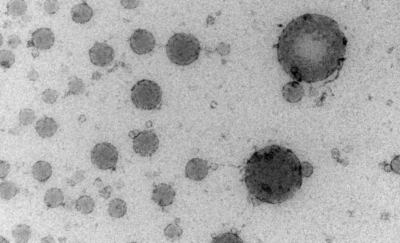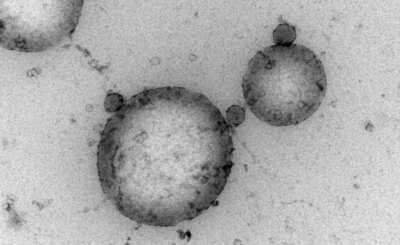The two main areas of research in the Zani Lab
Use of Extracellular Vesicles for Therapy
Through the RESPIRE program (REgeneration via Stem cell Products for the Improvement of Respiration), the Zani lab has been investigating EVs as therapeutic agents for a devastating birth defect, called Congenital Diaphragmatic Hernia (CDH). Babies affected by this condition have underdeveloped lungs (pulmonary hypoplasia), with vascular remodeling leading to pulmonary hypertension. The high mortality rate (50%) and the long-term morbidity in survivors are directly related to the severity of lung underdevelopment.
Our lab has shown that administration of extracellular vesicles from amniotic fluid stem cells (AFSC-EVs) rescues fetal lung underdevelopment in multiple models of pulmonary hypoplasia, including fetal lung explants and organoids. We have demonstrated that AFSC-EV administration promotes lung branching morphogenesis and alveolarization, via the release of EV cargo miRNAs that regulate the expression of genes involved in lung development. We are now further characterizing AFSC-EV effects on underdeveloped fetal lungs, with the aim to translate these findings to the clinical setting.
Use of Extracellular Vesicles as Biomarkers
As EVs carry cargo similar to their cells of origin, EVs have been tested as diagnostic tools for various clinical conditions. The Zani lab has been investigating the signatures of EVs derived from different sources, such as plasma, sputum, and tissue. In particular, we have been studying the cargo of brain derived EVs isolated during neuroinflammation secondary to necrotizing enterocolitis (NEC) Moreover, together with the Ellis Lab at SickKids, we are investigating the role of astrocyte derived EVs in RETT syndrome.
Transmission electron microscopy image of extracellular vesicles derived from amniotic fluid stem cells.



